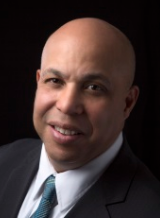Duff: A Presentation on Workers' Compensation COVID Presumptions
Tuesday, February 16, 2021 | 0
Back on Jan. 22, Professor John F. Burton and I presented at a webinar conducted by the Workers' Injury Law and Advocacy Group (WILG) and titled, "COVID as an Occupational Disease: How Do Various States Handle these Claims?"

Michael C. Duff
In this report, published by WILG, the edited papers from the webinar have been published. Most of the report consists of Burton's substantial paper. I contributed a shorter paper on the legal mechanics of how the presumptions operate in an evidentiary sense, which gave me an opportunity to write the delightful phrase, "bursting bubble presumption."
One important difference between the views of Burton and my own is that, while we each support the idea of causation presumptions, he would automatically limit presumptions to a small universe of first responders and narrowly defined (perhaps by CDC categories) "essential workers."
I, on the other hand, am much more desirous of a robust, transparent, democratic debate on just who qualifies as an essential worker. It is now very clear that COVID-19 has had a disparate impact on communities of color, and the elephant in the room is that limiting COVID causation presumptions to first responders may have the impact of privileging relatively high paid, white, male workers.
I do not say that such limitations are definitively wrong. I merely think the matter of eligibility should be transparently and robustly debated, and the premise thereby subjected to public scrutiny.
Burton and I reach some common ground (and perhaps compromise) by way of his very interesting proposal that presumptions could be triggered by reference to OSHA-cited workplaces: Causation presumptions could be applied to workplaces known to be violating OSHA COVID-related safety standards.
A mechanism of that type may be preferable to presumption structures that ex ante (even if unintentionally) operate to discriminate against low-wage workers who are predominantly of color and women. In some ways, it avoids the question of who is essential and targets coverage to where it is most needed.
The presentation may be seen here.
Michael C. Duff is associate dean for student programs and external relations and professor of law at the University of Wyoming College of Law. This entry is republished from the Workers' Compensation Law Professors blog, with permission.





Comments